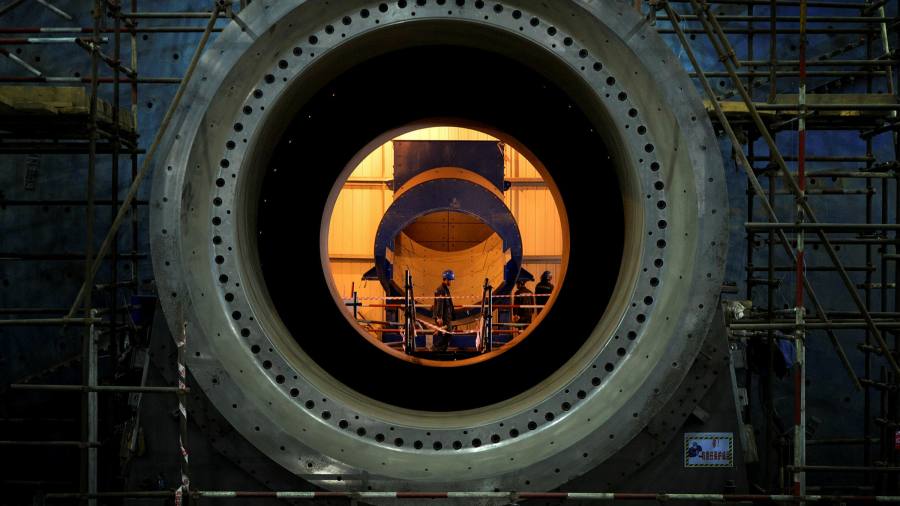[ad_1]
The government of Mongolia is seeking Rio Tinto’s agreement to terminate the deal that underpins the construction of a $6.75bn underground copper mine in the Gobi Desert, according to people with knowledge of the situation.
The ruling Mongolian People’s party and its new prime minister Luvsannamsrain Oyun-Erdene is facing pressure from parliament to replace the underground development plan for the Oyu Tolgoi mine.
But rather than act unilaterally and risk future foreign investment in the country, Ulaanbaatar has asked the Anglo-Australian miner whether it is prepared to mutually terminate the plan and replace it with a new agreement that offers better terms, the people said.
The underground expansion of Oyu Tolgoi has been dogged by problems and disputes with the government. The project — Rio’s most important — is already $1.5bn over budget and almost two years behind schedule.
The government threatened last month to halt development, saying the delays had eroded the economic benefits the country had hoped to get.
At peak production Oyu Tolgoi will be the fourth-biggest copper mine in the world, producing almost 500,000 tonnes from its existing open pit and underground mine. A decision on whether to start complex caving operations must be taken by June. First production is expected in October 2022.
Oyu Tolgoi, the country’s biggest source of foreign direct investment, has created thousands of well-paid jobs and generated almost $3bn of taxes and fee revenue in the past decade.
Signed in 2015, the UDP, also known as the Dubai agreement, put the underground project back on track after an earlier dispute between Rio and the government.Â
The agreement — and $4.4bn of project financing — was pulled together by Rio’s former chief executive Jean-Sébastien Jacques and the nation’s then prime minister Chimediin Saikhanbileg.
It sets out the fee Rio receives for managing the project as well as the interest rates on the cash Ulaanbaatar has borrowed to finance its share of the construction costs.
However, the UDP was never approved by Mongolia’s parliament and has become a focal point for critics who say the country should receive a greater share of the financial benefits from mine.
A parliamentary resolution was passed in December 2019 ordering the government to improve the terms of the UDP.
“The government has to fix the legitimacy issue,†said one person with knowledge of the discussions. “Mutual termination of the UDP would achieve this.â€
Rio has already told Ulaanbaatar it is prepared to “explore†a reduction of its project management fees and loan interest rates, according to documents seen by the Financial Times.
However, it is unlikely to agree a new development plan unless it also addresses some key concerns of the company. These include a long-term power solution and Oyu Tolgoi’s budget for 2021.
Rio’s negotiations are now being led by Bold Baatar, a Mongolian national who was recently appointed to run Rio’s copper business.
‘I acknowledge the government’s wish to improve the underground development plan and I am looking forward to discussing that with them, I hope in a way which promotes investor confidence in the country,†Baatar said in a statement.
The push to replace the UDP comes ahead of presidential elections in June, which the government hopes to win to complete a clean sweep of Mongolia’s hybrid parliamentary-presidential system. The government declined to comment.
Twice weekly newsletter

Energy is the world’s indispensable business and Energy Source is its newsletter. Every Tuesday and Thursday, direct to your inbox, Energy Source brings you essential news, forward-thinking analysis and insider intelligence. Sign up here.
[ad_2]
Source link





